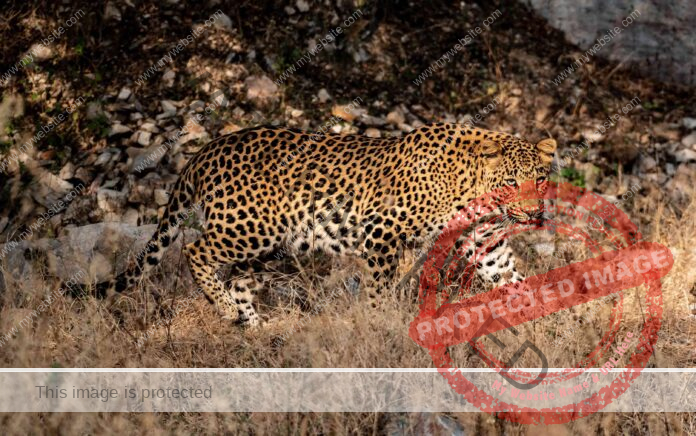It’s good news for wildlife enthusiasts. The fifth cycle leopard population estimation carried out by the National Tiger Conservation Authority and Wildlife Institute of India, in collaboration with State Forest Departments has recorded a significant rise of 8 percent between 2018 and 2022, which meant 1022 more wild cats in India in past four years.
As part of the quadrennial ‘Monitoring of Tiger, Co-predators, prey and their habitat” exercise in tiger range states of the country, the exercise has proved invaluable to the conservation efforts of the country.
India’s leopard population has been estimated at 13,874 individuals, representing stable population in comparison to the similar area being sampled in 2018 finding nearly 12852 individuals. This estimate represents population of 70% of leopard habitat, the Himalayas and semi arid parts of country which were not tiger habitat, were not sampled.
As per the report released by Union minister for Environment, Forest and Climate Change Bhupender Yadav, Central India showed a stable or slightly growing population of leopards (2018: 8071, 2022: 8820), Shivalik hills and Gangetic plains experienced decline (2018: 1253, 2022: 1109). If we look at the area which was sampled both in 2018 and 2022 across India, there is a growth of 1.08% per annum. In Shivalik hills and Gangetic plains, there is a -3.4% decline per annum, while the largest growth rate was in Central India and Eastern Ghats recorded at 1.5%.
Madhya Pradesh houses the largest population of leopards in the country – 3907 (2018: 3421), followed by Maharashtra (2022: 1985; 2018: 1,690), Karnataka (2022: 1,879 ; 2018: 1,783) and Tamil Nadu (2022: 1,070; 2018: 868). Tiger Reserves or sites with highest leopard population include Nagarajunasagar Srisailam (Andhra Pradesh) followed by Panna (Madhya Pradesh) and Satpura (Madhya Pradesh).
The fifth cycle of leopard population estimation (2022) in India focused on forested habitats within 18 tiger states, covering four major tiger conservation landscapes. This cycle conducted a foot survey spanning 6,41,449 km to estimate carnivore signs and prey abundance. Camera traps were strategically placed at 32,803 locations, resulting in a total of 4,70,81,881 photographs, resulting in 85,488 photo-captures of leopard.
| STATE | POPULATION |
| Madhya Pradesh | 3907 |
| Maharashtra | 1985 |
| Karnataka | 1879 |
| Tamil Nadu | 1070 |
| Chattisgarh | 722 |
| Rajasthan | 721 |
| Uttarakhand | 652 |
| Kerala | 570 |
| Andhra Pradesh | 569 |
| Odisha | 568 |
| Uttar Pradesh (with Ranipur) | 371 |
| Telangana | 297 |
| North Bengal | 233 |
| Bihar | 86 |
| Goa | 77 |
| Assam | 74 |
| Jharkhand | 51 |
| Arunachal Pradesh | 42 |































